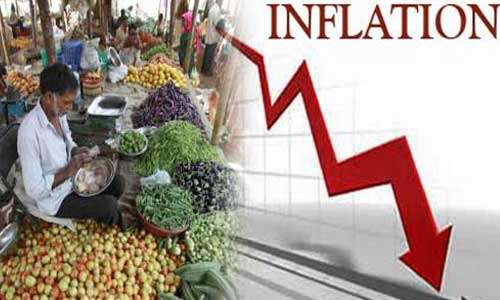The National Bureau of Statistics (NBS) has said the inflation rate in Nigeria has witnessed a steady decline for the past seven months.
At a news briefing in Abuja on Friday, Mr Simon Harry, Statistician-General said that some of the sectors had a multiplier effect on the economy which informed the optimism of declining inflation rate.
“We have consistently maintained a decline of about seven months and the reason for that is some of the policies put in place by the government are impacting positively on most of the commodities that make up the basket for the Consumer Price Index (CPI).
“Government is very conscious of the effects of the COVID-19 that have impacted negatively on the economy and as result, the economic sustainability plan that was formulated by the government has been taken as a very serious document to implement so it will cushion the effect.
“That has had an impact on several sectors of the economy, thereby having multiplier effect parameters that are used to compose the CPI.
“One would have no option but to be optimistic that this trend will be maintained to a reasonable period of time as long as government determination is sustained in the implementation of current policies that have been put in place.”
The CPI, which measures inflation, increased by 16.63 per cent (year-on-year) in September, under the All Item Index.
This is 0.38 per cent points lower than the rate recorded in August at 17.01 per cent.
On a month-on-month basis, the Headline Index increased by 1.15 percent. This represents a 0.13 per cent rate higher than the rate recorded in August at 1.02 per cent.
The percentage change in the average composite CPI for the 12-month period ending September over the average of the CPI for the previous 12-month period was 16.83 per cent.
This showed a 0.23 per cent point from 16.60 per c ent recorded in July.
Also responding to a question on the different prices of goods in markets in the Federal Capital Territory, Harry said Nigeria is operating an imperfect economy.
The statistician-general said the NBS had the sole responsibility of data production on prices and not formulate policies to control market prices.
“We are operating an imperfect economy and equally there is imperfection in the market and it is expected that prices in market A will be different from prices in market B.
“Our sole responsibility is in terms of producing the data that concerns some of these developments. It is not our responsibility to formulate policies that will control some of these negative happenings.
“We go beyond our responsibility to identify some factors responsible for some of these problems and then present them to the policy makers and advise them to come out with policies to help strengthen the system so we have a better system.”




